#caligula art
Explore tagged Tumblr posts
Text

Caesar is driving, Mark Antony is in the passenger seat, agrippa is asking for mac Donald's, octavian and brutus are staring at eachother in the back
#roman empire#roman#art#caligula#caligula art#digital art#celtic#comics#julius caesar#tiberius#mark antony#brutus#octavian#agrippa#august#augustus
28 notes
·
View notes
Text


The seated statue of Caligula wearing a toga, originally discovered on Aventine Hill, now part of the Louvre collection.
#emperor gaius#caligula#ancient rome#roman empire#ancient art#julio claudian dynasty#ancient culture#ancient history#statue
254 notes
·
View notes
Text
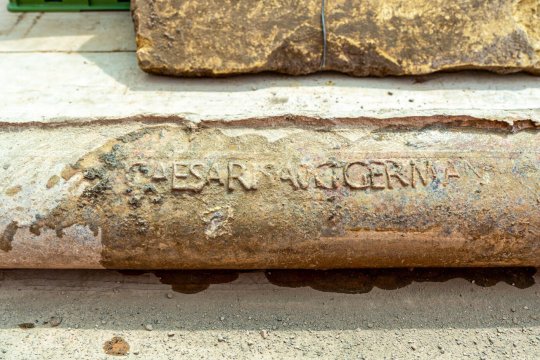
Roman Emperor Caligula's 2,000-Year-Old Garden Unearthed Near the Vatican
The gardens overlooking the Tiber river in Italy once belonged to an infamous Roman emperor.
Construction workers in Italy have discovered a 2,000-year-old garden that once belonged to a Roman emperor.
The travertine walls of the garden overlook the banks of the Tiber, a river that cuts through Rome and sits east of Vatican City. The ruins were unearthed as workers constructed a new overpass at Piazza Pia, according to a translated statement from the Italian Ministry of Culture.
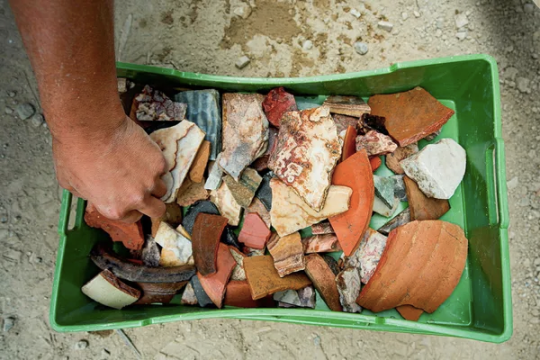
As archaeologists removed debris, they found a lead water pipe with the following inscription: "C(ai) Cæsaris Aug(usti) Germanici." Researchers determined that the engraving referred to Gaius Caesar Augustus Germanicus, better known as Caligula (aka "little boot," a childhood nickname given to him by his father's soldiers).
Based on the inscription, researchers think the garden likely belonged to the infamous Roman emperor. Not only was Caligula known for being a tyrannical and ruthless leader, he was also a sadist who humiliated his senate. Caligula assumed the throne in A.D. 37, and in A.D. 41 the Praetorian Guard — the officials who were supposed to protect him — assassinated the emperor.
This conclusion is supported by a passage in the ancient text "On the Embassy to Gaius," penned by Egyptian philosopher Philo of Alexandria. It describes how Caligula had met with a representative of Jews living in Alexandria, Egypt, at a large garden along the Tiber, according to the statement.
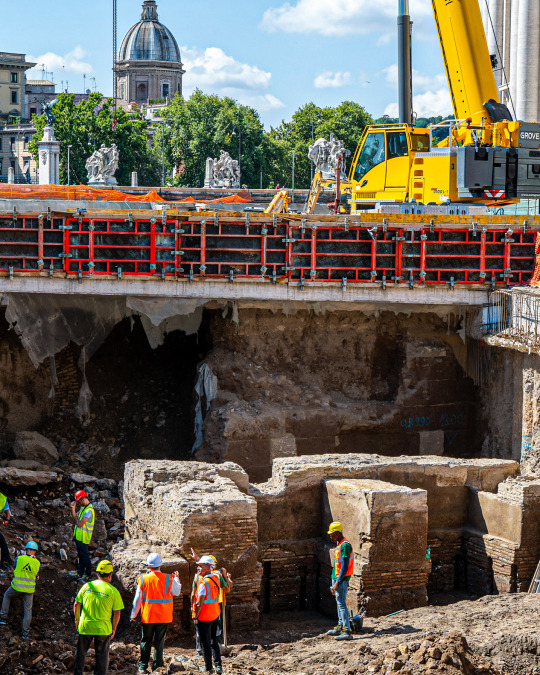
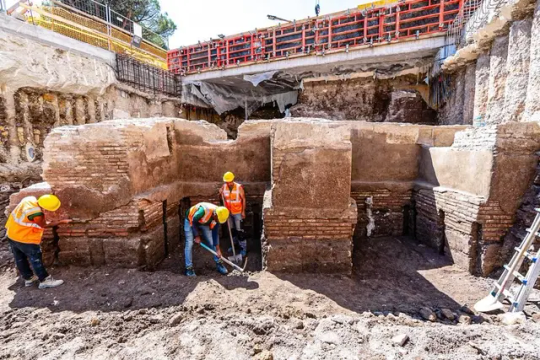


At that time, Jewish Alexandrians and the Greek-Alexandrian population were in a "crisis that had manifested itself with violence, brawls and episodes of religious intolerance." However, Caligula rejected the Jews' requests for religious autonomy, instead siding with the Greeks.
Alessio De Cristofaro, an archaeologist at the Special Superintendency for Archaeology, Fine Art and Landscape, a government agency in Rome, said the find is significant because Piazza Pia is in the same area as the "Horti Agrippinae," the garden of Agrippina the Elder, who was Caligula's mother.
The pipe is also similar to another one, found in the early 1900s, that's inscribed with the name Iulia (Julia) Augusta, the second wife of Augustus and the grandmother of Germanicus. Researchers speculate that the property was inherited by Germanicus and later passed down to his wife, Agrippina the Elder, before going to Caligula.
In addition to the pipe, archaeologists found slabs of Roman-era pottery and terra-cotta figures of mythological scenes that would have decorated rooftops.
By Jennifer Nalewicki.
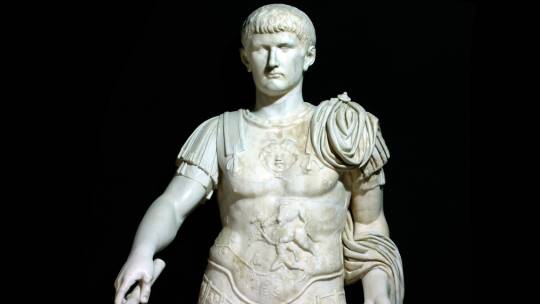
#Roman Emperor Caligula's 2000-Year-Old Garden Unearthed Near the Vatican#Tiber river#Piazza Pia#ancient artifacts#archeology#archeolgst#history#history news#ancient history#ancient culture#ancient civilizations#ancient rome#roman history#roman empire#roman art#ancient art
242 notes
·
View notes
Text

Roman Emperors: Augustus – Gordian I
27 BC – 238 AD
Excited to be working on these again! The series is nearing completion! Pride edition will follow shortly…
#roman emperor#roman empire#rome#history art#ancient rome#1st century bc#1st century#2nd century#3rd century#julio claudian dynasty#augustus#caligula#emperor nero#flavian dynasty#domitian#nerva antonine#marcus aurelius#trajan#hadrian#commodus#geta#caracalla#severan dynasty#elagabalus#digital art#roman tag
63 notes
·
View notes
Text





#these idiots#ermmm what the scallop#artists on tumblr#silly drawing#art#digital illustration#shitpost#roman history#emperor caligula#emperor Caesar#julius caesar#elagabalus
66 notes
·
View notes
Text

THESE FUCKING GUYS I just really like drawing them SORRY @bojia-2009 silly silly silly😛😛😛
#art#artists on tumblr#wav3y#clone high#clone high fanart#traditional art#clone high original character#clone high oc#elagabalus clone high#elagabalus#caligula
62 notes
·
View notes
Text



Art by psycheswrath
#ancient rome#julio claudian dynasty#tiberius#vipsania#tiberius x vipsania#augustus#julia the elder#caligula#psycheswrath#digital art
46 notes
·
View notes
Text

Sigma!
#art#artists on tumblr#george iv#georgeposting#king george iv of england#beau brummell#brummellposting#charlesposting#king charles ii of england#charles ii of england#richardposting#richard iii#king richard iii#emperor caligula#caligula#julius caesar
34 notes
·
View notes
Text
TOA SPOILERS!!!!
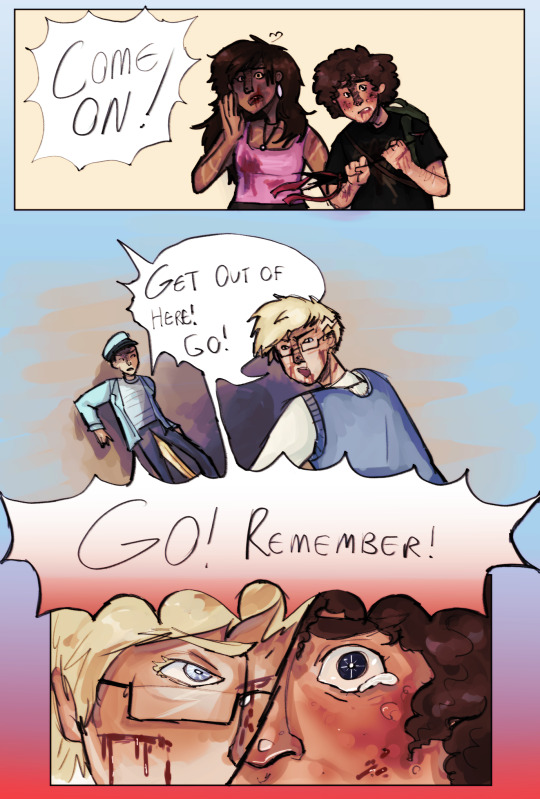
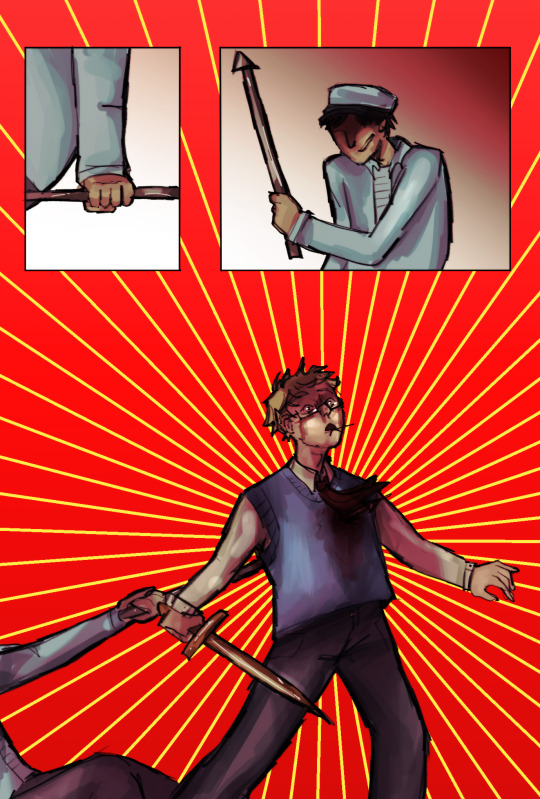
artists rendition of jasons death but it was for school. and i removed the horses... and changed jasons uniform... honestly idek if he was wearing it during this i forgor
#toa spoilers#trials of apollo#the trials of apollo#the burning maze#toa#toa fanart#toa apollo#lester papadopoulos#piper mclean#caligula#riordanverse#art#ophii#ophii draws things
109 notes
·
View notes
Text

happy holidays
#my ocs#my art#watercolour#painting#art#traditional art#illustration#paradisus#utopia caligula#augustus#max#tiberius#onion#finfin#pikmin#algernon#valenport#lou#hashtag serena multiverse
24 notes
·
View notes
Text

SATURNALIA DAY ONE WITH NONE OTHER THEN BRUTUS AND CASSIUS!
28 notes
·
View notes
Text
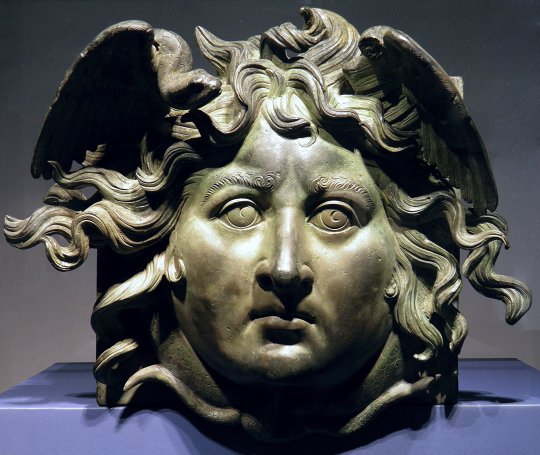

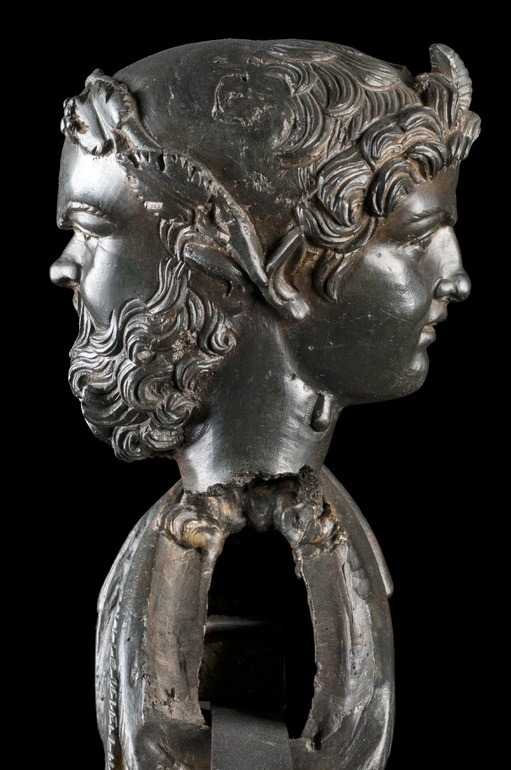
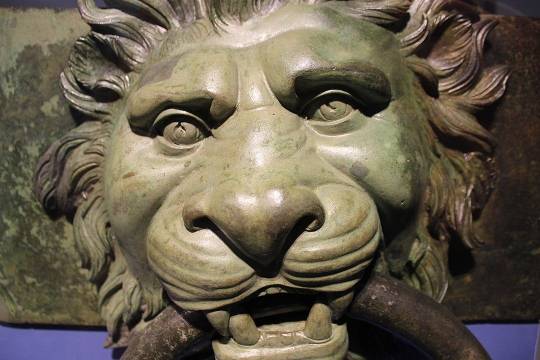

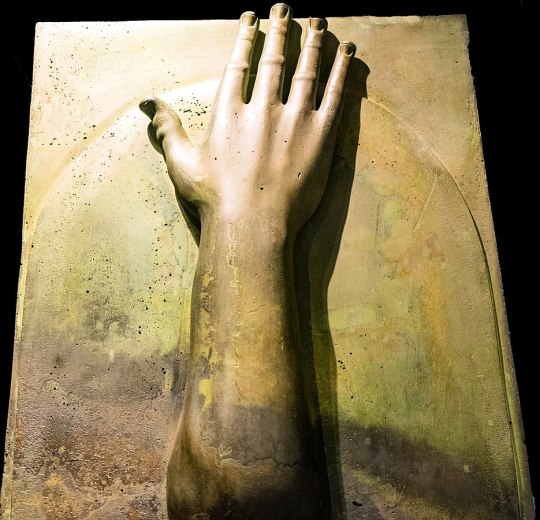
These bronze decorations are part of what remains from the Nemi ships, pleasure barges of Emperor Caligula. The sunken ships were recovered in 1929 but were destroyed in 1944 during WWII.
#ancient rome#roman empire#ancient art#ancient culture#ancient history#julio claudian dynasty#emperor gaius#caligula#emperor caligula#bronze#nemi ships
622 notes
·
View notes
Text

Bronze Bust of Roman Emperor Caligula Rediscovered After 200 Years
The small bronze statue, which was unearthed at Herculaneum, had been missing for two centuries
A curator in England has rediscovered a tiny Roman-era bronze bust of the emperor Caligula, which had been missing for some 200 years.
The artifact was unearthed in the mid-18th century at Herculaneum, the ancient town preserved under volcanic ash since Mount Vesuvius’ eruption in 79 C.E. Then, Horace Mann, the British ambassador to Italy, acquired the five-inch-tall statue and gave it to his friend, Horace Walpole, the British writer and politician.
The two friends even exchanged letters about the 2,000-year-old bronze, according to a statement from Strawberry Hill House, Walpole’s Gothic home in London.
“I gaze on it from morning to night. It is more a portrait than any picture I ever saw,” Walpole wrote in 1767. “The hair and ears seem neglected, to heighten the expression of the eyes, which are absolutely divine, and have a wild melancholy in them, that one forebodes might ripen to madness.”


Caligula is infamous for his eccentric and cruel behavior. Legend has it that the emperor was so obsessed with his horse, Incitatus, that he tried to make the animal a consul, though this rumor is likely untrue. His reign, which began in 37 C.E., was erratic. He was assassinated after only four years in power.
Today, only seven other small-scale bronze busts of the emperor are known to exist. When Walpole died in 1797, his Roman bust changed hands several times, with some owners mistaking the visage for Alexander the Great.
Silvia Davoli, a curator at Strawberry Hill, found the lost bust in the family collection of Sir John Henry Schroder, who had purchased it in the 1890s, per the statement.
As a curator of Walpole’s former estate, Davoli was familiar with the politician’s correspondence with Mann and knew of the statue’s existence. She had also seen a drawing of it, which Walpole had commissioned from the artist John Carter. When she came across the bronze in Schroder’s collection, she was able to match it to Carter’s drawing.
Schroder doesn’t appear to have known what the statue was or where it came from. According to Strawberry Hill, the family’s collection catalogs refer to the piece as a “possible Renaissance bronze of a youth.”
“They had no idea it was Caligula,” Davoli tells the Guardian’s Richard Brooks. “I was so happy when I finally saw the bronze and made the link.”


Because the statue hadn’t become discolored over time, experts had previously assumed it dated to the 16th century. However, a recent analysis of the metal confirmed that the bronze is, in fact, ancient.
Dietrich Boschung, an expert on imperial Roman iconography at the University of Cologne in Germany, has since examined photos of the statue.
“I’m convinced it is Caligula,” Boschung tells the Guardian. For him, the statue’s piercing silver eyes are a dead giveaway—a common feature of Roman-era bronzes depicting emperors. He also finds it feasible that the piece was once at Herculaneum. “Around that time, many Roman bronzes were found there,” he adds.
To celebrate the discovery, Strawberry Hill will include the ancient bust in its upcoming exhibition, “The Art of Treasure Hunting.” Visitors can check out the tiny Caligula statue for themselves when the show opens on June 28.
By Julia Binswanger.

#Bronze Bust of Roman Emperor Caligula Rediscovered After 200 Years#Roman Emperor Caligula#Herculaneum#bronze#bronze statue#bronze sculpture#bronze bust#ancient artifacts#archeology#archeolgst#history#history news#ancient history#ancient culture#ancient civilizations#roman history#roman empire#roman emperor#roman art#ancient art
100 notes
·
View notes
Text

😌
I've finished it :D
Characters: Alex (a clockwork orange, 1972)
Caligola (Caligola, 1980)
I was listening to "New person same old mystake" by Tame Impala and this idea blow out in my mind-
I don't really like it☺️
But I don't care🧍♂️
I letarally spent a month on this alone, and I'm happy about posting it :>
#alex delarge#a clockwork orange#caligula#malcolm mcdowell#i love drawing him#i don't like this#but i don't care#:3#:D#author is tired#art#artwork#digital art#forgive me please
27 notes
·
View notes
Text

commission for @kirikomamura
80 notes
·
View notes
